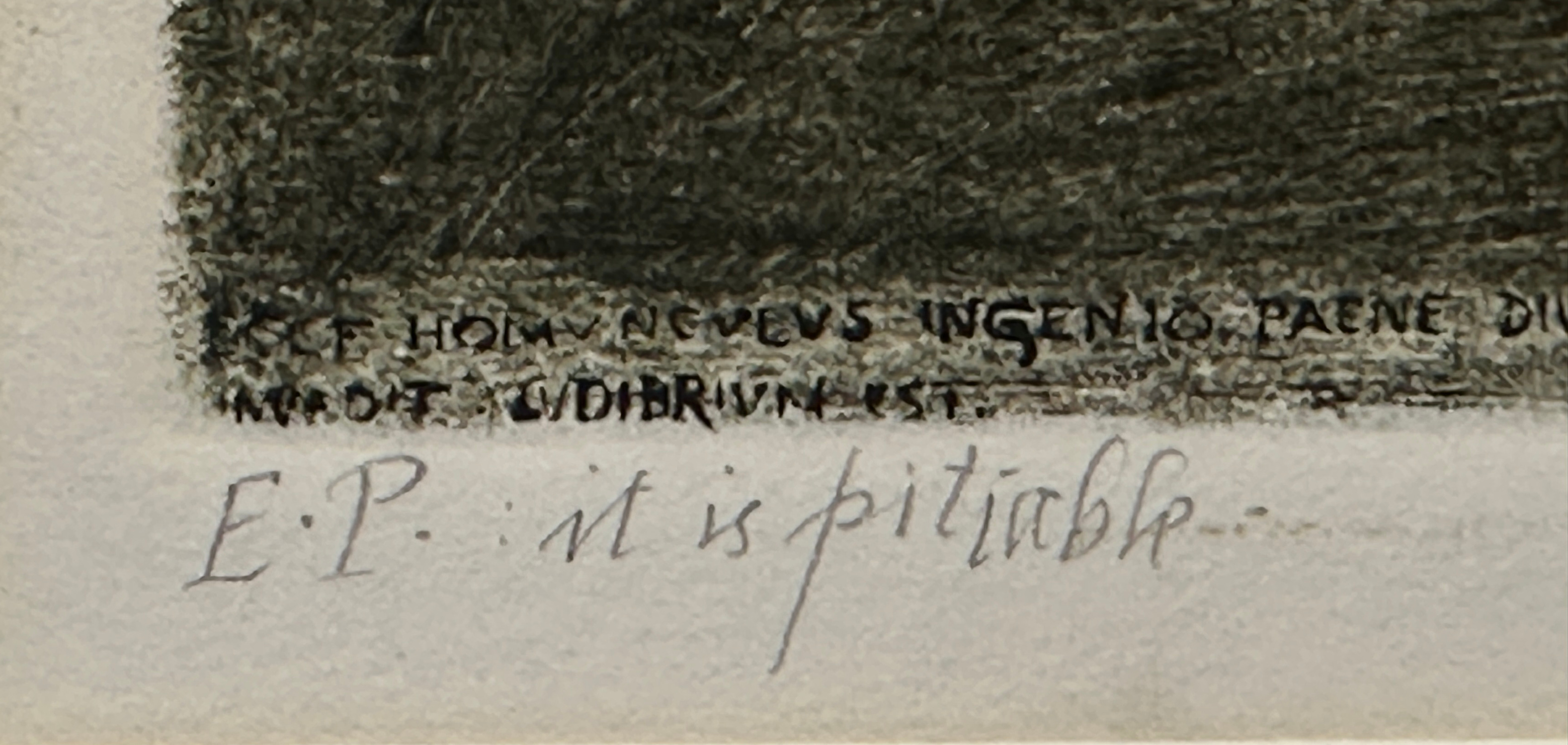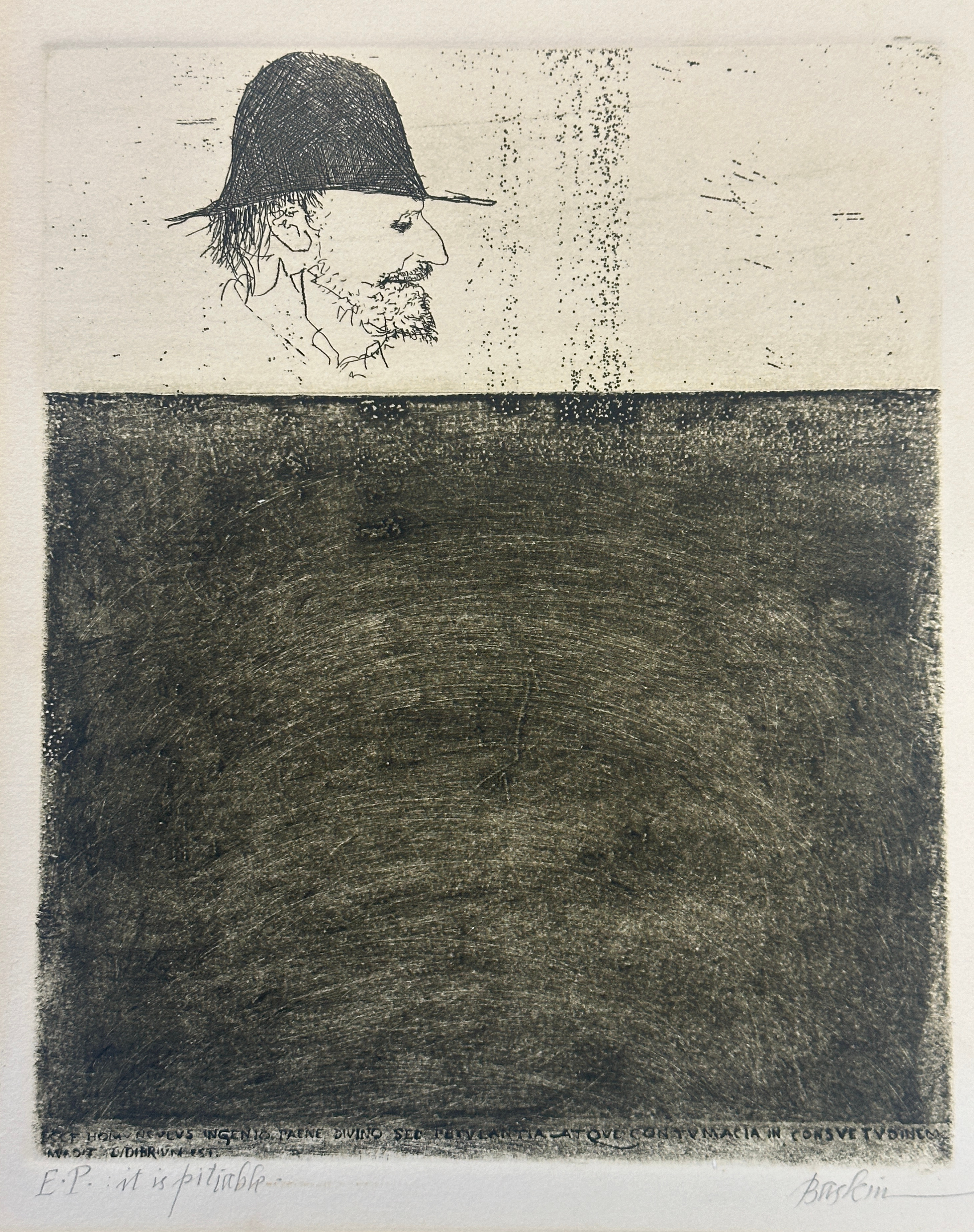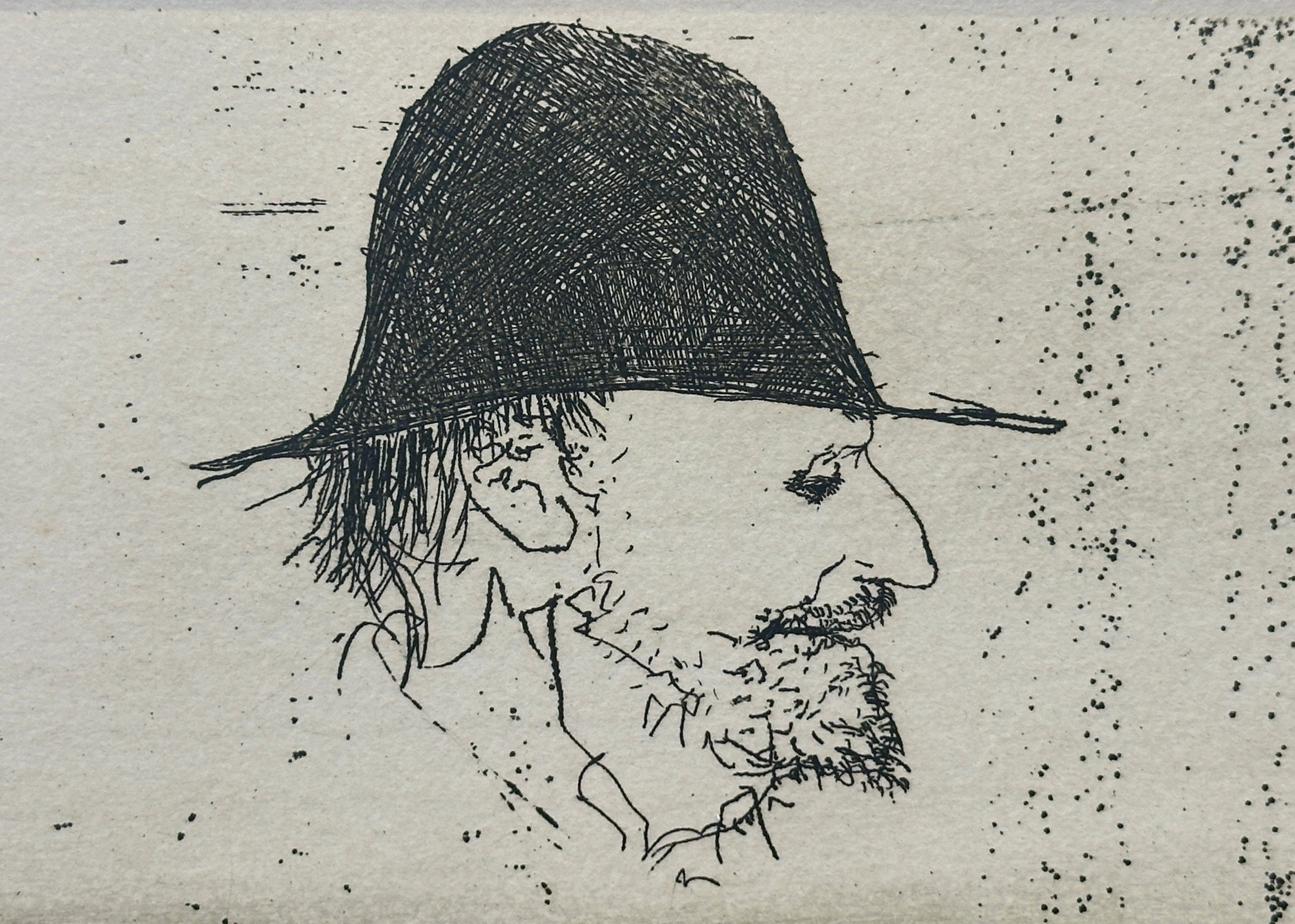Description
Ezra Pound. Brilliant, powerful, clever; among the greatest poets of the Twentieth Century. But also a fascist, racist, and antisemite, whose virulent language gave power to the Nazis and to Mussolini.
Across the bottom of this work Baskin has inscribed the words, “Ecce homunculus ingenio paene divino, sed potestatia atque contumacia in consuetudinem invadit. Cudibrium est.” My high school Latin is not quite up to the task, but my best translation of this statement is, “Behold the man of almost divine genius but whose power and stubbornness invade his soul. It is a trap.” (I think I have not captured the last portion, but perhaps I come close.) The title of this work—”E.P.: It is Pitiable”—tells us what Baskin is thinking.
By 1964, when Baskin created this work, the War had ended, Ezra Pound had turned himself over to the Allies, moved to the United States, and was treated at St. Elizabeth’s Hospital in Washington, DC, for supposed mental health disorders. His time there substantially rehabilitated his reputation. But was he really mentally ill? Was he ever sorry for his views? Was he pitiable?









